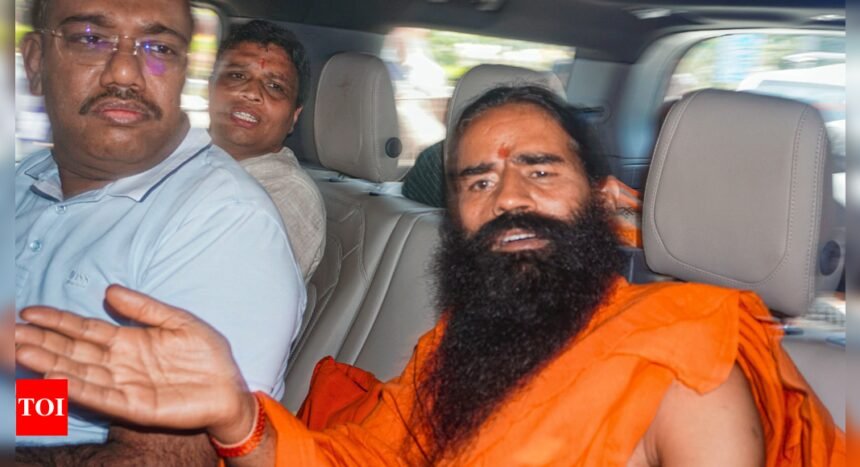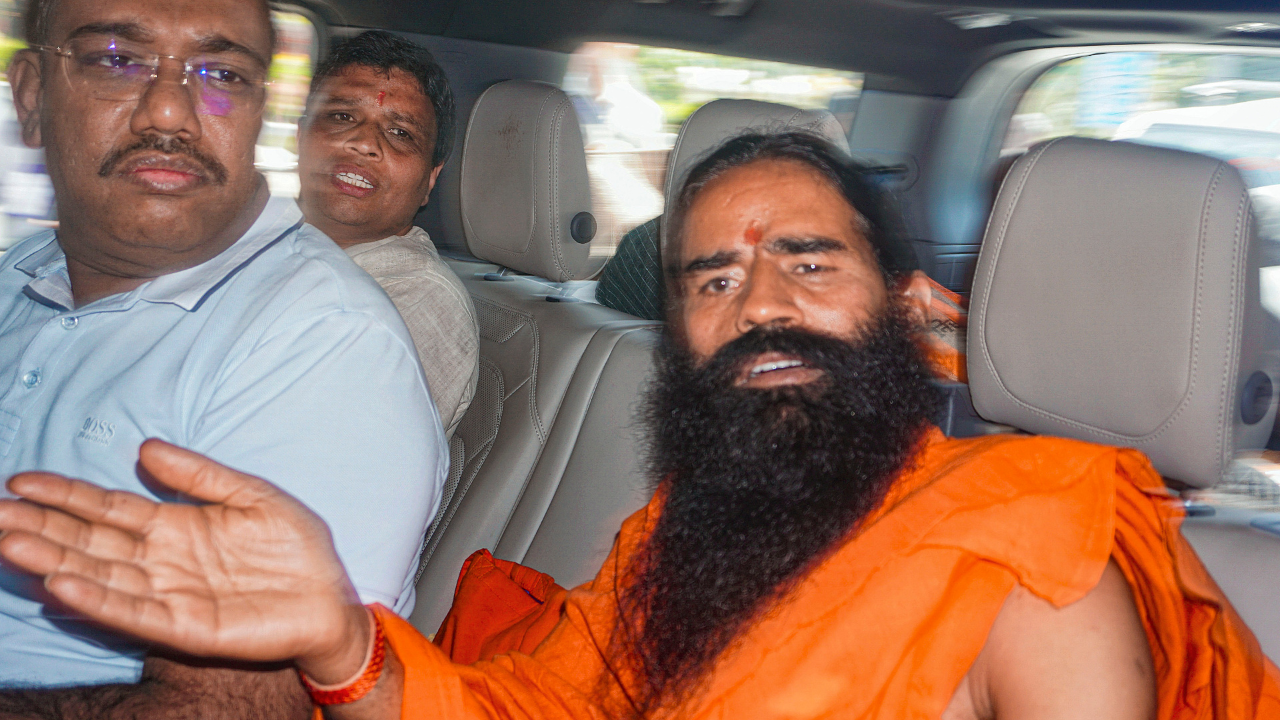[ad_1]
After not acting on complaints against Patanjali’s misleading ads for more than two years, the Uttarakhand state licensing authority’s (SLA) latest excuse for not taking any action was shot down by the Supreme Court.
The SLA claimed that since the matter was in the Supreme Court “further action against the firm will be subject to the order/judgement of the court”, whereas the court order observed that “no such direction to await any action has been passed by this Court”.
Meanwhile, the Ayush ministry filed an affidavit in court which showed that the SLA had not taken any action on a complaint filed in February 2022, beyond giving a warning and asking the company to stop advertisements, though the company continued to advertise throughout the two years.
The court went on to state that “a perusal of the letter dated 08th March, 2024 addressed by the Union of India to the State Licencing Authority calling upon it to provide the detailed action taken by it within two days from the date of issuance of the letter itself shows that the State Licensing Authority has failed to discharge its duties, as contemplated under the Act”. It added that the SLA’s reply to the Ayush ministry showed that the company had just been issued a warning.
In the hearing in November 2023, Patanjali assured the court that it would not make any “casual statements claiming medicinal efficacy of any system of medicine”. However, the company issued similar advertisements on December 4, 2023 and yet again on January 22, 2024. In the hearing in February, the apex court issued a contempt notice to Baba Ramdev and Patanjali/Divya Pharmacy’s MD Acharya Balkrishna for continuing to propagate misleading health cures through the advertisements. The court also slammed the central government for its inaction on Patanjali’s “misleading and false” advertisements.
“My first complaint against Patanjali’s misleading ads in February 2022 clearly stated that it was for violation of section 3 of the Drugs and Magic Remedies Act (DMRA), which prohibits advertising drugs for 54 diseases and conditions. When this was forwarded by the Ayush ministry to Uttarakhand SLA, they wrote back to the ministry that they cannot take action under Rule 170 of the Drugs and Cosmetics Rules as it had been stayed by a court. Where did Rule 170 come from when the complaint was for the violation of DMRA? Despite me insisting that there was no complaint under Rule 170, they continued to send notice to the company under it. This was a deliberate ploy by the SLA to delay acting against the company,” said Dr KV Babu, the complainant, and a member of Indian Medical Association’s (IMA) central working committee.
Section 3(d) of the DMRA prohibits directly or indirectly advertising the diagnosis, cure, mitigation, treatment or prevention of any disease, disorder or condition specified under the Act. Dr Babu added that after the first complaint he had flagged several more ads, which kept appearing even as the SLA dragged its feet.
Ayush ministry received several complaints on misleading ads which violated DMRA in February 2022 and it wrote to Uttarakhand’s SLA seeking action and asked for an action taken report on the complaints. Though SLA wrote to Patanjali, the ads continued to appear, and the Ayush ministry forwarded more complaints to the SLA and asked again for an action taken report.
While SLA sent a notice to the company citing Rule 170 on April 26, 2022, the company responded stating that Rule 170 had been stayed by the Mumbai high court in February 2019. Over a year later, in May 2023, the Ayush ministry was still seeking action pointing out that the power of implementation of DMRA is vested with the state or union territory governments. One more year later, after being slammed by the Supreme Court for inaction, on March 8, 2024, Ayush ministry was again seeking an action taken report.
The SLA claimed that since the matter was in the Supreme Court “further action against the firm will be subject to the order/judgement of the court”, whereas the court order observed that “no such direction to await any action has been passed by this Court”.
Meanwhile, the Ayush ministry filed an affidavit in court which showed that the SLA had not taken any action on a complaint filed in February 2022, beyond giving a warning and asking the company to stop advertisements, though the company continued to advertise throughout the two years.
The court went on to state that “a perusal of the letter dated 08th March, 2024 addressed by the Union of India to the State Licencing Authority calling upon it to provide the detailed action taken by it within two days from the date of issuance of the letter itself shows that the State Licensing Authority has failed to discharge its duties, as contemplated under the Act”. It added that the SLA’s reply to the Ayush ministry showed that the company had just been issued a warning.
In the hearing in November 2023, Patanjali assured the court that it would not make any “casual statements claiming medicinal efficacy of any system of medicine”. However, the company issued similar advertisements on December 4, 2023 and yet again on January 22, 2024. In the hearing in February, the apex court issued a contempt notice to Baba Ramdev and Patanjali/Divya Pharmacy’s MD Acharya Balkrishna for continuing to propagate misleading health cures through the advertisements. The court also slammed the central government for its inaction on Patanjali’s “misleading and false” advertisements.
“My first complaint against Patanjali’s misleading ads in February 2022 clearly stated that it was for violation of section 3 of the Drugs and Magic Remedies Act (DMRA), which prohibits advertising drugs for 54 diseases and conditions. When this was forwarded by the Ayush ministry to Uttarakhand SLA, they wrote back to the ministry that they cannot take action under Rule 170 of the Drugs and Cosmetics Rules as it had been stayed by a court. Where did Rule 170 come from when the complaint was for the violation of DMRA? Despite me insisting that there was no complaint under Rule 170, they continued to send notice to the company under it. This was a deliberate ploy by the SLA to delay acting against the company,” said Dr KV Babu, the complainant, and a member of Indian Medical Association’s (IMA) central working committee.
Section 3(d) of the DMRA prohibits directly or indirectly advertising the diagnosis, cure, mitigation, treatment or prevention of any disease, disorder or condition specified under the Act. Dr Babu added that after the first complaint he had flagged several more ads, which kept appearing even as the SLA dragged its feet.
Ayush ministry received several complaints on misleading ads which violated DMRA in February 2022 and it wrote to Uttarakhand’s SLA seeking action and asked for an action taken report on the complaints. Though SLA wrote to Patanjali, the ads continued to appear, and the Ayush ministry forwarded more complaints to the SLA and asked again for an action taken report.
While SLA sent a notice to the company citing Rule 170 on April 26, 2022, the company responded stating that Rule 170 had been stayed by the Mumbai high court in February 2019. Over a year later, in May 2023, the Ayush ministry was still seeking action pointing out that the power of implementation of DMRA is vested with the state or union territory governments. One more year later, after being slammed by the Supreme Court for inaction, on March 8, 2024, Ayush ministry was again seeking an action taken report.
[ad_2]
Source link





